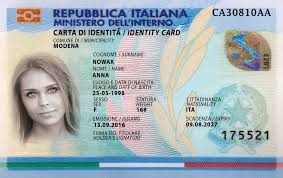Italy: ‘Mum and dad’ references to be removed from kids’ ID cards

Rome: Italian identity cards will no longer refer to children’s parents as “mother” and “father” but use gender neutral terms for parents, the government announced in a move welcomed by civil rights campaigners.
It reverses a change made by far-right leader Matteo Salvini when he was interior minister in 2019. He objected to the previously existing use of the terms “parent 1” and “parent 2” on ID cards of children under 14.
Interior Minister Luciana Lamorgese told parliament the move was motivated by the need to comply with European data protection rules.
She said the Italian data protection watchdog raised objections to Salvini’s reform, saying it undermined the rights of children not under the custody “of a maternal or paternal figure.”
A ministerial decree to scrap Salvini’s reform was issued in October and now is pending approval.
“Lamorgese’s words are welcome, now let’s finally end the discrimination for children of same-sex couples,” the Italian Coalition for Freedom and Civil Rights (Cild) said on Friday.
Giovanni Donzelli, a lawmaker with the far-right Brothers of Italy party, accused the minister of “folly”.
Gender-related issues are particularly controversial in Italy, a traditionally Catholic and patriarchal society where same-sex partnerships were only given legal recognition five years ago.
While Italy does not recognize gay marriage or the parental rights it would guarantee, at a local level various Italian cities have begun allowing same-sex couples to legally register their children to both parents, a move towards de facto acknowledgement.
On Wednesday, the country’s Supreme Court considered a challenge to the civil code that would allow parents to give the mother’s last name to the child.
In Italy, if both parents recognise their child, the child can only be given the father’s last name. A mother’s last name can only be used if the father does not recognise his child.
In 2016, the same court struck down a law that prohibited a child from obtaining a hyphened name made up of both parents’ last names.





